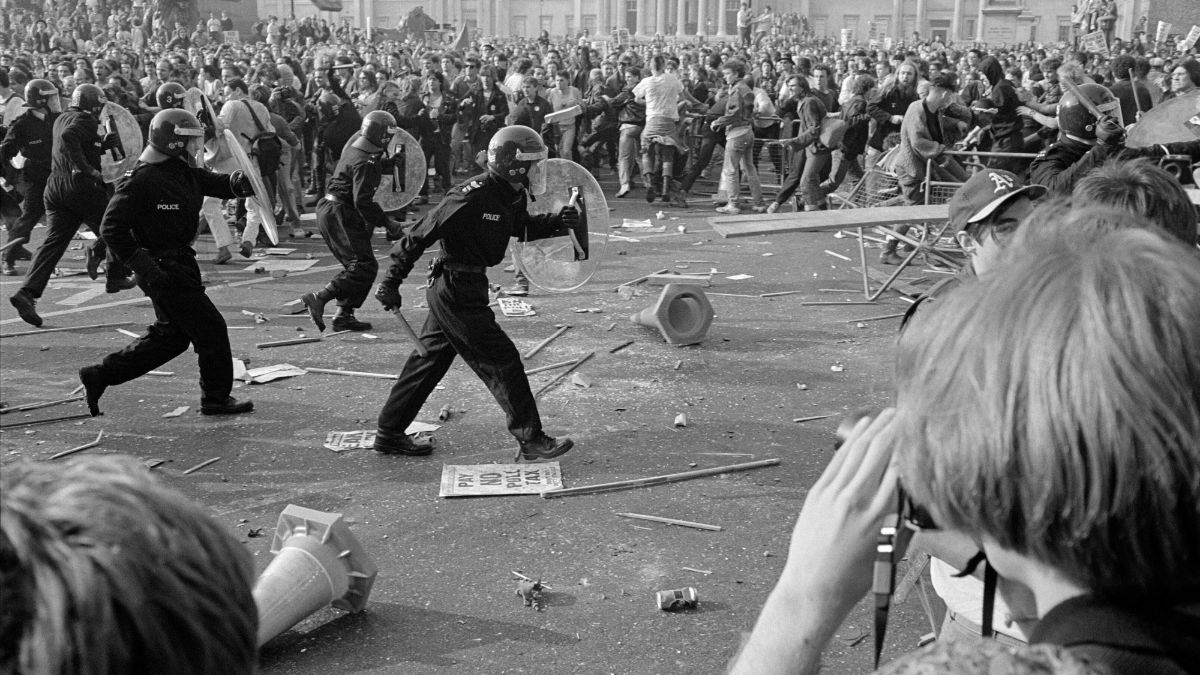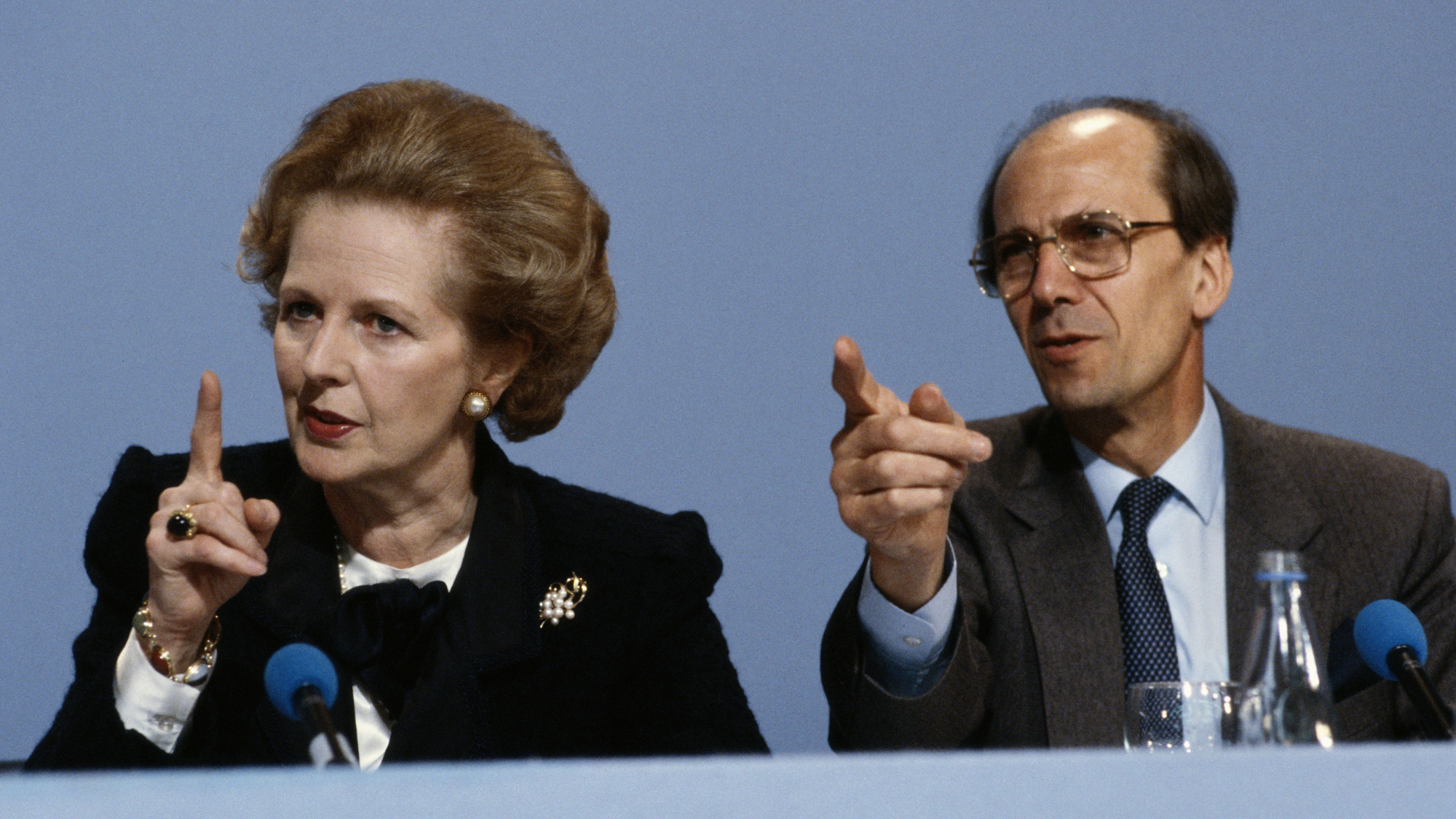Poll tax papers show Margaret Thatcher ignored early rebellion
Newly released government files reveal ministers' fears over the 'most celebrated political disaster in post-war Britain'

A free daily email with the biggest news stories of the day – and the best features from TheWeek.com
You are now subscribed
Your newsletter sign-up was successful
Secret documents from Margaret Thatcher's time in power have shed new light on the political infighting surrounding the highly controversial poll tax legislation.
Newly released National Archives files from that time show how Thatcher, then prime minister, ignored repeated warnings from her own cabinet ministers over the law that eventually contributed to her political downfall.
What was the poll tax?
The Week
Escape your echo chamber. Get the facts behind the news, plus analysis from multiple perspectives.

Sign up for The Week's Free Newsletters
From our morning news briefing to a weekly Good News Newsletter, get the best of The Week delivered directly to your inbox.
From our morning news briefing to a weekly Good News Newsletter, get the best of The Week delivered directly to your inbox.
Officially known as the community charge, the poll tax replaced domestic rates based on property values with a flat-rate levy. It was first introduced in Scotland in 1989 and a year later in England and Wales.
What was the response?
Thousands refused to pay, arguing the charge unfairly targeted those on lower incomes. The move sparked the worst riots in London for a century, with around 100 people injured and more than 400 arrested after demonstrators clashed with police in March 1990.
What was going on behind the scenes?
A free daily email with the biggest news stories of the day – and the best features from TheWeek.com
Dating from 1986 to 1988, the files show the tax was also unpopular in the corridors of power. Then chancellor Nigel Lawson warned it would be "completely unworkable and politically catastrophic".
Conservative Party chairman and Thatcher loyalist Norman Tebbit, meanwhile, raised concerns over the failure to exempt students from the deal, telling the prime minister he was "particularly concerned" that students' parents - "many of whom are our supporters" - would be forced to pay twice, says the Daily Telegraph.
The documents also reveal one cabinet minister's move to include homeless people in the tax. Peter Walker, then Welsh secretary, said exempting them would "encourage" people to sleep on the streets by creating "an enormous loophole into the system".
What is the poll tax's legacy?
"Amid a weakening economy and softening Tory poll numbers, [Thatcher's] vehement support for the tax struck many in her party as proof that she was out of touch with voters," says the Daily Telegraph. "Those doubts played a part in the Conservative assassination of their leader in November 1990."
A book published in 1992 - a year after the levy was scrapped by Thatcher's successor, John Major - dubbed the poll tax the most celebrated political disaster in post-war Britain.
The political ramifications are still being felt in the Conservative Party today – especially in Scotland, according to a 2014 editorial in The Guardian.
"The poll tax remains the locus classicus for domestic political miscalculation and the yardstick by which all other UK governmental policy ineptitudes are still judged," it says.
-
 The high street: Britain’s next political battleground?
The high street: Britain’s next political battleground?In the Spotlight Mass closure of shops and influx of organised crime are fuelling voter anger, and offer an opening for Reform UK
-
 Is a Reform-Tory pact becoming more likely?
Is a Reform-Tory pact becoming more likely?Today’s Big Question Nigel Farage’s party is ahead in the polls but still falls well short of a Commons majority, while Conservatives are still losing MPs to Reform
-
 Taking the low road: why the SNP is still standing strong
Taking the low road: why the SNP is still standing strongTalking Point Party is on track for a fifth consecutive victory in May’s Holyrood election, despite controversies and plummeting support
-
 Norman Tebbit: fearsome politician who served as Thatcher's enforcer
Norman Tebbit: fearsome politician who served as Thatcher's enforcerIn the Spotlight Former Conservative Party chair has died aged 94
-
 What difference will the 'historic' UK-Germany treaty make?
What difference will the 'historic' UK-Germany treaty make?Today's Big Question Europe's two biggest economies sign first treaty since WWII, underscoring 'triangle alliance' with France amid growing Russian threat and US distance
-
 Is the G7 still relevant?
Is the G7 still relevant?Talking Point Donald Trump's early departure cast a shadow over this week's meeting of the world's major democracies
-
 Angela Rayner: Labour's next leader?
Angela Rayner: Labour's next leader?Today's Big Question A leaked memo has sparked speculation that the deputy PM is positioning herself as the left-of-centre alternative to Keir Starmer
-
 Is Starmer's plan to send migrants overseas Rwanda 2.0?
Is Starmer's plan to send migrants overseas Rwanda 2.0?Today's Big Question Failed asylum seekers could be removed to Balkan nations under new government plans


